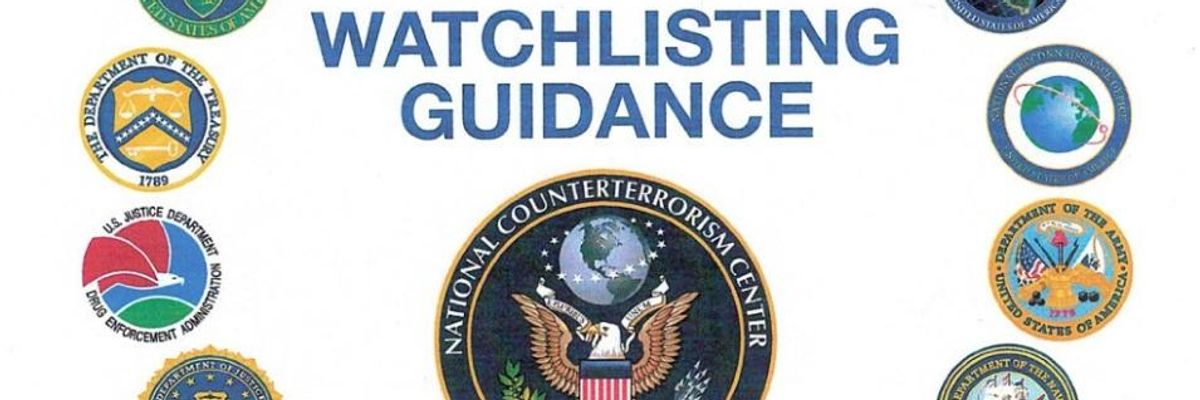Denouncing the database as "an illegal boondoggle," a civil rights organization on Wednesday is calling for a congressional probe after the FBI admitted it lied for years when it insisted federal authorities do not share the so-called terrorist watchlist with private entities.
In fact, as the Associated Press first reported, the federal government has shared the controversial Terrorist Screening Database (TSDB) with 1,441 private entities including universities, detention facilities, and hospitals.
The list, created in the wake of the Sept. 11 attacks, may contain as many as a million names and, according to civil rights groups, the names are placed there on dubious grounds.
From AP:
The government's admission comes in a class-action lawsuit filed in federal court in Alexandria by Muslims who say they regularly experience difficulties in travel, financial transactions, and interactions with law enforcement because they have been wrongly added to the list.
Following the challenge brought by the Washington D.C.-based Council on American-Islamic Relations (CAIR), U.S. District Judge Anthony Trenga, according to AP, "ordered the government to be more specific about how it disseminates the watchlist" because "the plaintiffs are entitled to the information to try to prove their case that inclusion on the list causes them to suffer 'real world consequences.'" The government responded earlier this month with the list of entities, though it did not say how they then use the TSDB.
"The indiscriminate dissemination of the watchlist is but the latest indication that the federal government's watchlisting system is an illegal boondoggle," said CAIR litigation director Lena Masri in a statement. "We call on congressional leadership to investigate the private sector dissemination of watchlisting information that stigmatizes the innocent and makes none of us safer."

